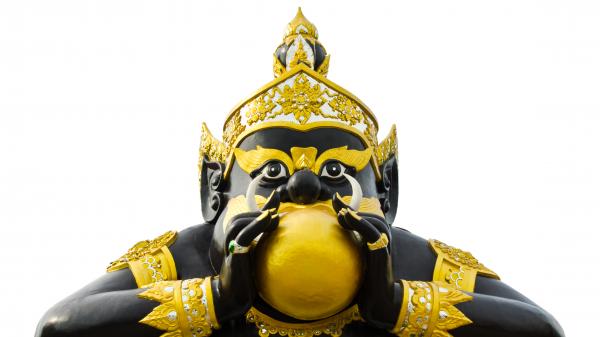Eclipses or grahan are considered to be inauspicious according to the Hindu mythology. The sun, which is worshipped as a major life force in the universe, disappears during the solar eclipse, making it an omen of all things evil. Naturally then, a number of rituals are conducted to minimise the negative effects of this natural phenomenon.
Here are some of the things that people do and don’t do during solar eclipses:
- Worshipping or touching gods is strictly prohibited during this period. Even temple doors usually stay closed during eclipses. After the eclipse ends, the idols are supposed to be washed with Ganga water to purify them.
- Meditation, chanting hymns or mantras and singing devotional songs during an eclipse are supposed to protect one from the evil effects.
- The rules dictate that no food should be cooked during the eclipse. Leftovers are finished off before the period of the eclipse. Some people in India leave tulsi or Indian basil leaves on cooked food items, and cover them to keep them safe.
- Sleeping, urination, defecation, sexual intercourse and makeup are also prohibited during the eclipse.

- Pregnant women are considered to be especially susceptible to the evil forces during eclipses. Not only are they supposed to abstain from activities like cutting vegetables and stitching clothes, but in some parts of India, they’re not even supposed to sit with their legs crossed.
- After the eclipse is over, people are directed to take a bath, and change into fresh and clean clothes. Sprinkling of Ganga water or taking a dip in the Ganga is also supposed to wash away the evil done by the eclipse.
While natural phenomenons like solar and lunar eclipses have been explained by science and scientists in details–even Aryabhata, the Indian scientist, gave the perfect scientific explanation for it in the fifth century–religion lies in the domain of faith in the unknown.


















Discussion about this post